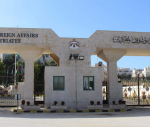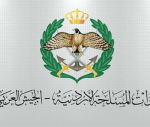You are here
UN and multilateral diplomacy remain our best hope for peace
Oct 26,2024 - Last updated at Oct 26,2024
Last Thursday marked the 79th anniversary of the creation of the United Nations (UN). For me, this was one of the darkest UN Days in my 17 years with the organisation, and that is saying a lot. I have spent nearly two decades providing humanitarian aid in the world’s worst crises: Gaza and the West Bank, Iraq during Daesh attacks and the Yazidi genocide, back-to-back earthquakes in Indonesia, Ebola in the Democratic Republic of Congo and two refugee crises from Sudan.
The wave of violence that has erupted across the Middle East since October 7, 2023 has yielded appalling consequences. Relentless death and destruction in Gaza and profound suffering for the people of Lebanon has been unleashed, hostages remain in captivity and the occupied West Bank has become a tinderbox of violence and tension. In northern Gaza, where a cherished former colleague of mine remains with his elderly parents, the darkest moment of the conflict is unfolding, fuelled by relentless bombing, siege and risk of starvation. Humanitarian access across Gaza is virtually non-existent and attacks on civilians, personnel (people I know by name) and infrastructure (places I have worked) are recurrent. Draft legislation that could prevent UNRWA from continuing its essential work in Palestine, contrary to the UN Charter, is under serious consideration by the parliament of one of the UN’s own member nations. In Lebanon, UN peacekeepers have come under attack and expanding violence has produced a humanitarian crisis of catastrophic proportions.
For over a year, the UN secretary-general and other UN leaders have repeatedly condemned the violence, calling for an end to the carnage and destruction, the prompt and unconditional release of all hostages, respect of international law and the delivery of humanitarian aid at scale.
Yet, diplomatic efforts have faltered. International humanitarian law the bedrock of my career, lies in tatters. Our collective humanity has been betrayed.
It is easy to lose faith under such conditions. Some might ask: what’s the point of multilateralism when conflicts persist and the United Nations appears unable to prevent or stop war? This crisis of faith in international cooperation is particularly acute in the Middle East, including in Jordan, as the region teeters towards ever larger crisis. Understandably, people are questioning whether diplomacy can deliver tangible results.
However, I believe that abandoning our commitment to multilateral cooperation is not an option, and we should not lose hope. History provides us with numerous examples of times when diplomacy, through the UN, de-escalated seemingly insurmountable crises, affirming that multilateralism remains our best hope for peace.
The United Nations was born in 1945 from the devastation of World War II that killed some 50 million civilians, left dozens of cities in ruins, and displaced up to 200 million people across multiple continents. Human suffering was immense, societies were fractured and peace was a fragile hope.
From these ashes, the United Nations was created, emerging through the sheer collective resolve by world leaders to prevent humanity from suffering the horrors of unchecked violence again. The UN Charter established a shared responsibility to protect human rights, advance peace and prevent future wars. These principles have guided the organisation since its founding, and they remain as relevant today as they were nearly eight decades ago.
We need only look to history to see that diplomacy can, indeed, make a difference, even in the most dire situations. During the Cuban Missile Crisis in 1962, when nuclear war between the United States and the Soviet Union seemed imminent, diplomacy through the United Nations provided a forum for backchannel negotiations that ultimately averted catastrophe. Similarly, the 1953 armistice in the Korean War, achieved through UN-mediated negotiations, provided a ceasefire that endures to this day, despite periods of tension. From 2022-2023, the Black Sea Grain Initiative, a UN plan that ensured Ukrainian grain and Russian food and fertiliser reach global markets, stabilising food prices and staving off famine worldwide, served as a rare example of two sides coming together to do something for global benefit. These moments remind us of the power of humanity when we come together.
Today, with the Middle East at a crossroads, the UN remains the world’s only platform for inclusive dialogue, where all nations can work together, even when deeply divided. It’s General Assembly is the only global forum where nations big and small have an equal seat and equal vote.
For nearly two years, I have witnessed firsthand the critical role the Kingdom plays on this global stage. Jordan’s moral leadership serves as a beacon of the values at the heart of the UN, a constant reminder to me that true peace is not merely the absence of war but the presence of cooperation, dialogue and a shared commitment to justice.
The UN’s work with Jordan is a model of what multilateral collaboration can achieve. Twenty-nine (29) UN agencies, funds and programmes work in partnership with the people and Government of Jordan to advance the common goals of social and economic progress, planetary preservation, and respect for human dignity. Across the governorates, UN agencies strengthen education, advance agricultural innovation, increase food security, improve industrial competitiveness, promote job creation, support youth and women economic empowerment, and protect biodiversity and cultural heritage and so much more. The UN remains a steadfast partner to Jordan in addressing the needs of Palestine and Syrian refugees and in sending aid to Gaza, the West Bank, and Lebanon.
Our partnership and shared commitment, even amidst regional instability, underscores the UN’s unique role in helping member nations like Jordan to improve lives, build resilience, and foster hope.
The United Nations is not perfect, but it is essential. The principles that underpin the United Nations — peace, justice, human rights, and the prevention of conflict — are not ideals we can afford to abandon. They provide a shared moral compass, guiding us toward a future where dignity and prosperity are rights enjoyed by all. The dedication of UN staff across the Middle East, who work with unwavering commitment, often against all odds, in atrocious conditions and at enormous risk to their own lives, demonstrates a powerful truth: That even when peace seems elusive, the tasks and values of the UN remain indispensable, offering a reason to retain hope for a better world.
As we reflect on 79 years of the UN, let us take hope from the lessons of the past and recognise that this is a time to reaffirm, not renounce, our commitment to the principles underpinning the organisation. Let us recognise that achieving the UN’s high goals requires action from everyone. World leaders have specific obligations, but civil society, communities and individual citizens must also contribute.
We must resist the urge to lose faith. Your support for diplomacy and the principles and values of the United Nations matters.
I invite you to join me in reaffirming the importance of the United Nations. Today, much like in 1945, our world needs the unity, compassion, and determination that only collective action can bring. Together, let us work toward a world where the weapons fall silent and peace, cooperation, and justice prevail for all, no matter their nationality, ethnicity, religion, gender, or age.
Sheri Ritsema-Anderson is United Nations resident coordinator in Jordan.













Add new comment